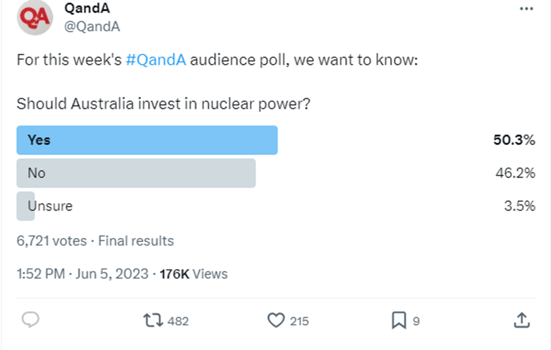2023 in review; energy transition gains momentum, but 2030 targets under scrutiny
2024 is already upon us, meaning 2030, and all the targets associated with it, are a step closer. In test cricket the third day is often referred to as “moving day” – the day where you see the momentum of the game shift to one team. When thinking about the energy transition, 2023 feels the same. The reality of the transition has hit. Industry executives are concerned about the pace and the question being asked is “can 2030 targets be met?’’
Heading in to 2024 it’s worth reflecting on the last year and what its milestones mean for the industry going forwards.
The underestimated challenge of grid decarbonisation
One of the standout realizations of 2023 has been the collective admission: the transition is not keeping pace with expectations. Industry leaders across various major energy companies have acknowledged the snail's pace of conversion, citing a cocktail of regulatory, technical, and market challenges. This sobering acknowledgment signals a need for more aggressive and innovative strategies.
Last year, AEMO’s CEO, Daniel Westerman described the transition as trying to “redesign and rebuild the aeroplane while flying it” and noted that the debate in 2023 had moved from “whether this will happen, to how quickly.”
The challenges aren’t just technical, community resistance to new transmission has been another underestimated setback.
According to Frank Calabria, CEO of Origin Energy; “The renewables won’t be built further without the transmission, so the one thing that I would be focused on is the approvals around transmission projects, and that does mean working with local communities and listening to them because the benefits will need to be shared.”
Batteries picking up the slack?
2023 saw a huge increase in the construction of grid scale batteries, with 4 batteries built in 2023 or earlier, 10 under construction and 8 approved and ready to go (according to Rystad Energy and the AFR). Many expect this trend to continue to accelerate through 2024.
The rise of batteries has also seen a surge in new entrants into the energy market, with financial powerhouses like Macquarie (Eku Energy) and Blackrock (Akaysha) putting their weight behind them.
Batteries will play an incredibly important role in supporting renewables, particularly in summer months, though without longer duration storage solutions, meeting winter demand could still prove challenging.
Nuclear is back! … and gone again?
2023 also saw the discussion about nuclear, particularly SMRs, really heat up. Federal Opposition Ministers in particular pushed nuclear as a solution that would deliver stable baseload power, while being able to use much of the existing grid.
Though many in the industry remained sceptical, as power prices surged, consumer sentiment definitely seemed to take a shift, with over 50% of participants in a Q&A poll backing Australia to invest in nuclear power.

However, in their draft 2023-24 GenCost report, the CSIRO included the full cost of transmission and firming when comparing generation sources and “the bottom line doesn’t appear to have changed – in 2023, in 2030, variable renewables have the lowest cost range” according to Paul Graham, their Chief Energy Economist.
One of the most well publicised companies, NuScale Power (the only ones to have a small modular nuclear power plant approved in the US), recently cancelled its first project due to budget blowouts, somewhat dampening predictions that it was a cost-effective alternative to renewable generation. Does this put the debate to bed?
Not much news on Australian hydrogen projects in 2023
In 2021 and 2022 it felt like there was a new hydrogen project announced every month, though throughout 2023 there was an eerie silence. Not just now new announcements, but previously announced projects simply going … quiet.
President Joe Biden announced a tax credit, the equivalent of $3 a kilogram for hydrogen, reducing the cost of green hydrogen by almost half, according to an AFR and Westpac Intelligence report.
According to Fiona Simon, CEO of the Australian Hydrogen Council “We’ve observed major players saying, ‘we were going to invest in Australia, and now we’re not,’ or deciding to reorient themselves toward looking to the US.”
However, the AFR reports that stateside hydrogen projects by Woodside and Fortescue may be in doubt after the US tightened the eligibility criteria for sources of clean electricity for electrolysers.
The regulatory response
In response to these evolving dynamics, 2023 has seen regulatory bodies and government agencies grappling with the task of creating frameworks that support innovation while ensuring reliability and affordability. The Australian Energy Regulator (AER) and other governmental bodies have been at the forefront of this, attempting to strike a balance between fostering renewable energy and maintaining grid stability.
However, there have been calls throughout 2023 from market commentators to tear up the rule book and start again. Will the sector add regulatory chaos to the task of transitioning to a renewable energy system by the middle of the decade?
What's next?
If 2023 was the year that the reality of the enormity of the transition set in, then 2024 is going to be pivotal. It’s going to be the year that construction needs to accelerate, and perhaps a year that governments need to make some very difficult decisions about trade-offs. Balancing the three needs of affordable, reliable and renewable energy is proving ever more challenging.
Energy Monthly
Get a different perspective on energy with our monthly newsletter.
Up next
.png)

Creating clarity during the energy transition.
Get a different perspective on energy with our monthly newsletter.

All rights reserved Energy Insights Pty Ltd




